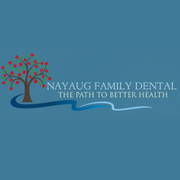
4 Ways Pregnancy Affects Oral Health
By Spring Hatfield, RDH September 2018
A woman goes through many changes during the nine months of pregnancy. It is always exciting to see the first signs of a baby bump, and most moms-to-be are concerned about the health of their growing baby. Unfortunately, these women can be misinformed or not informed at all about how pregnancy can affect oral health and how their oral health can affect their baby.
A study conducted in 2014 found that, although obstetricians generally were knowledgeable about appropriate dental care practices during pregnancy, as well as the relationship between oral health and pregnancy outcomes, this knowledge often did not translate into appropriate practice behavior.
Pregnancy Gingivitis (Gum disease)
Pregnancy gingivitis may result from hormonal changes that exaggerate the response to bacteria in the periodontal tissue. The inflammation of the periodontal tissues due to the formation of biofilm increases dramatically in severity during a normal pregnancy, even without changes in the amount of biofilm present. Some studies indicate the reason for the increased inflammation during pregnancy is possibly directly related to the levels of estrogen in the saliva. In all trimesters and postpartum, the individuals with both high estrogen and high visible plaque had the highest frequency of pregnancy gingivitis. Risks can increase in the second and third trimesters. Considering the increased risk of pregnancy gingivitis in some pregnant patients, in addition to a thorough review of oral hygiene instructions, more frequent cleanings may be necessary.
Dental Caries (Decay)
Dental caries risk can be increased during pregnancy. Though many patients believe the increase in caries during pregnancy is due to “the baby taking all their calcium,” we know this is not true. The fetal need for calcium is met by maternal physiological changes, primarily through increased calcium absorption.
A better explanation for the increase in dental caries during pregnancy is a combination of factors. A study was conducted in 2015 that focused on the measurement of salivary pH (acidity) during the different trimesters of pregnancy. In this study, a decrease in salivary pH was observed with an increase in caries incidence. A decreased concentration of carbonic anhydrase enzyme (salivary buffer) has been seen to lead to an increased prevalence of caries. The cause of the pH shift during pregnancy is attributed to changes in diet such as increased snacking due to cravings, increased acidity in the mouth due to vomiting, dry mouth, or poor oral hygiene stemming from nausea and vomiting.
Dietary modifications & topical fluoride treatments at dental appointments may be beneficial. Topical fluoride has been assigned to pregnancy category B by the FDA, other well-known drugs found in this category include Acetaminophen and Diphenhydramine. Topical fluoride is not considered a teratogen. With all drugs, a need should be established and approval from the treating obstetrician is advised.
Pyogenic Granuloma
Pyogenic granuloma is a smooth or lobulated abnormal growth. The surface ranges from pink to red to purple, depending on the age of the lesion. Although it was originally thought to be caused by pyogenic organisms, it is now believed to be unrelated to infection, but perhaps due to the hormonal changes.
Management of pyogenic granuloma usually depends on the severity of symptoms. If the lesion is small, painless, and free of bleeding, clinical observation and follow up is advised. Conservative surgical excision and removal of causative irritants, such as plaque, calculus, and foreign materials are the usual treatments.
Dental Erosion
Dental Erosion stemming from GERD and vomiting due to morning sickness may become a concern. The increase in intra-abdominal pressure during pregnancy may increase the intrusion of gastric acids into the oral cavity, especially during sleep, and is damaging to the teeth. Dental erosion is irreversible, the focus of erosion is prevention and reduction followed by maintenance. Patients with morning sickness should be encouraged to avoid tooth brushing immediately after vomiting. Instead, they should rinse with a diluted solution of one cup of water and one teaspoon of baking soda to neutralize the acid. Most studies find that milk and yogurt products (presumably unsweetened) can have a protective effect on erosion because of their calcium and phosphate content. Studies have indicated fluoride treatments are effective in protecting dental enamel from the effects of erosion.
In general, pregnant women need more information on dental health during pregnancy. With worries about high blood pressure, weight gain, and gestational diabetes, along with other complications that could occur during pregnancy, oral health often gets overlooked.
Untreated caries and periodontal disease also pose risks to the unborn baby. Some of the concerns associated with poor oral health include preterm, low birth weight babies and preeclampsia.
Having regular dental checkups during pregnancy is vital. There are many misconceptions about dental care during pregnancy, however, given the implications of poor oral health and its association with adverse pregnancy outcomes, the team at Nayaug Family Dental hopes this article will be helpful. We are here to address all of your oral health care needs.
About the Business
Have a question? Ask the experts!
Send your question

